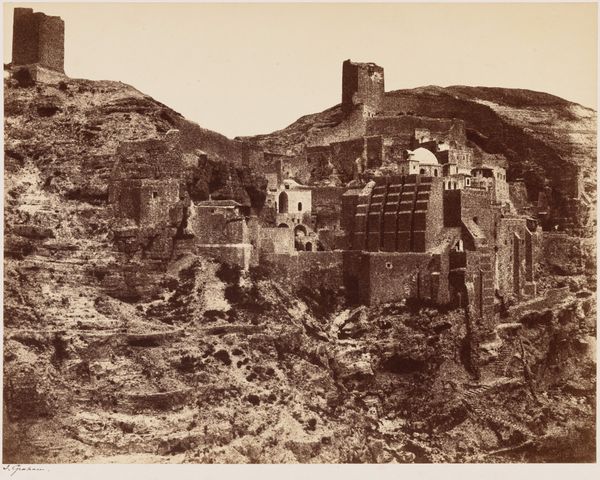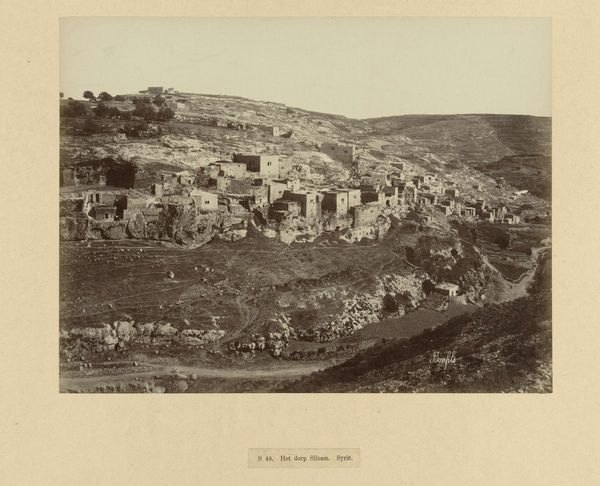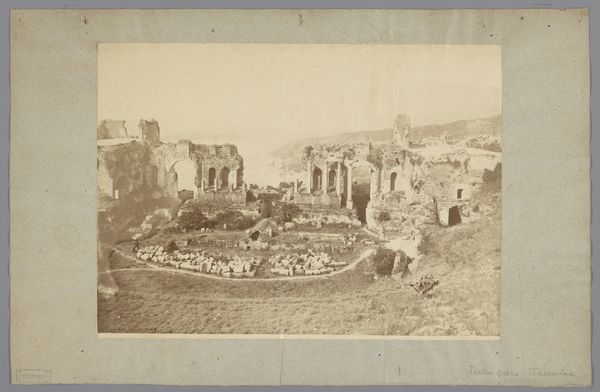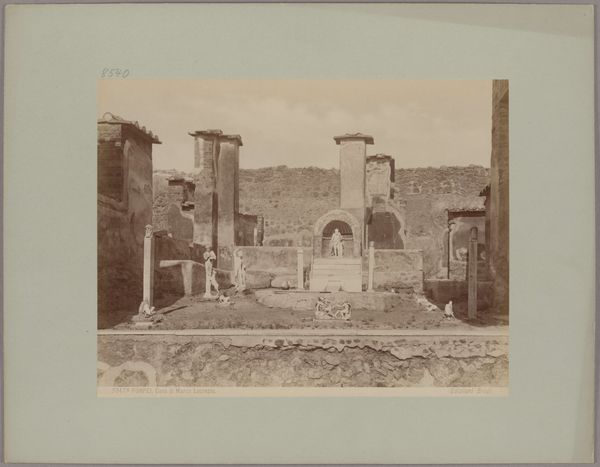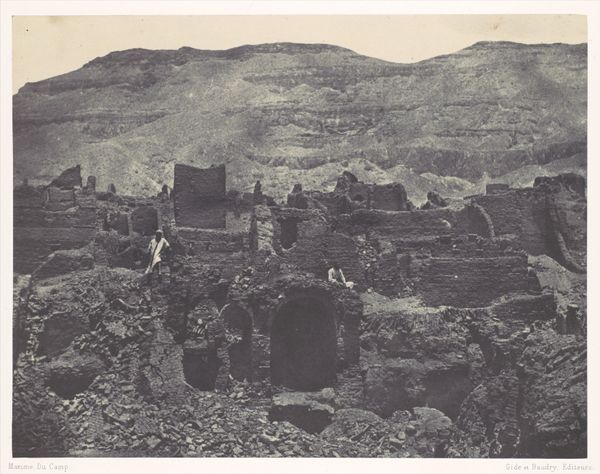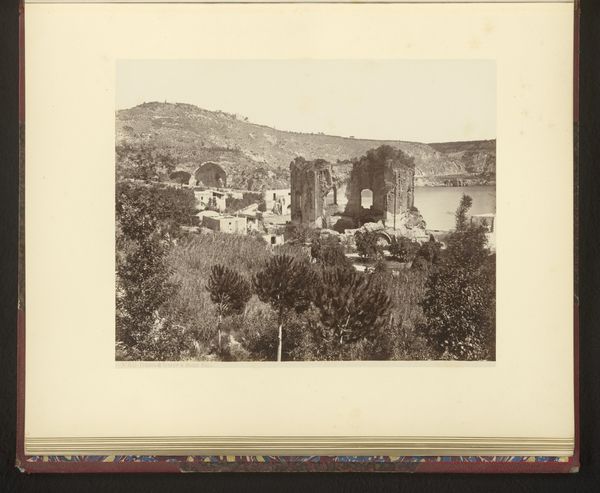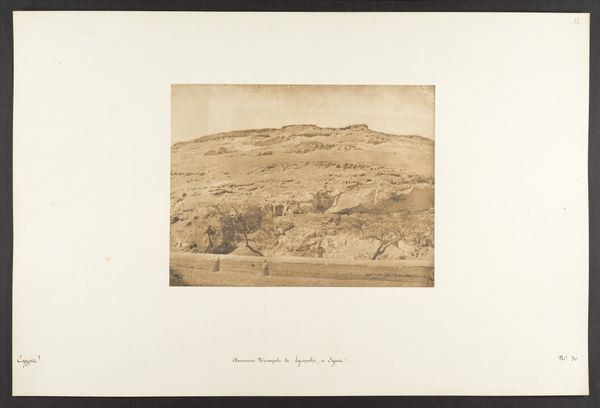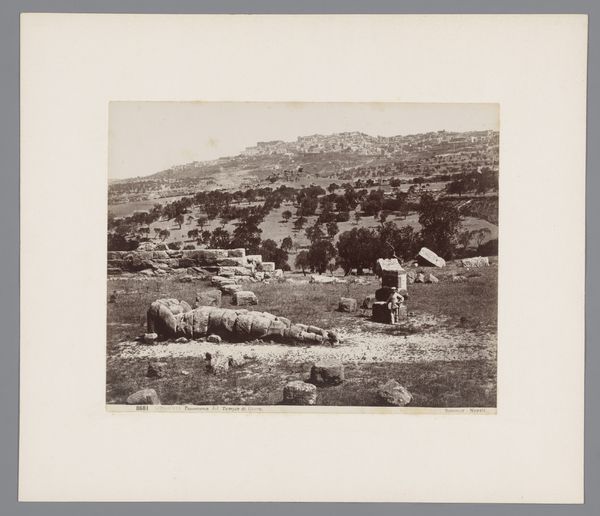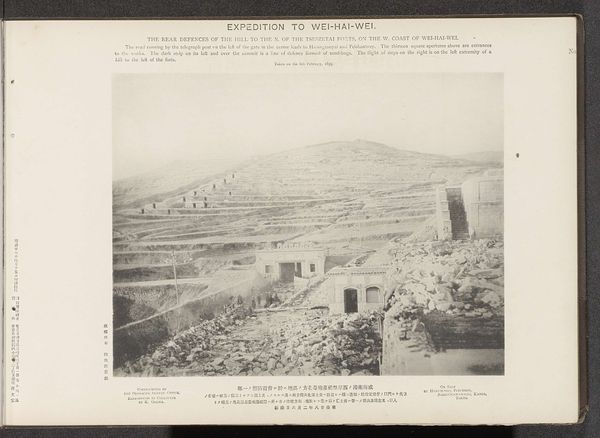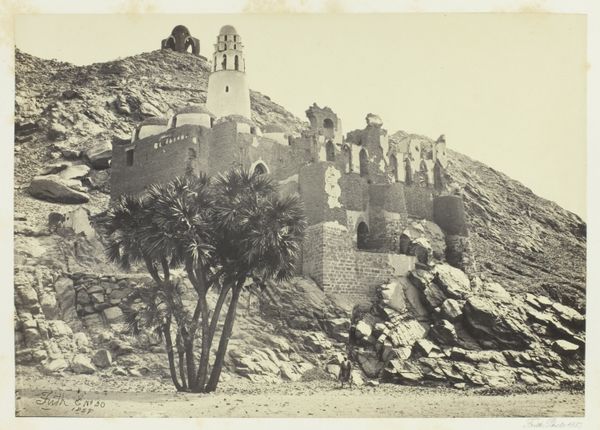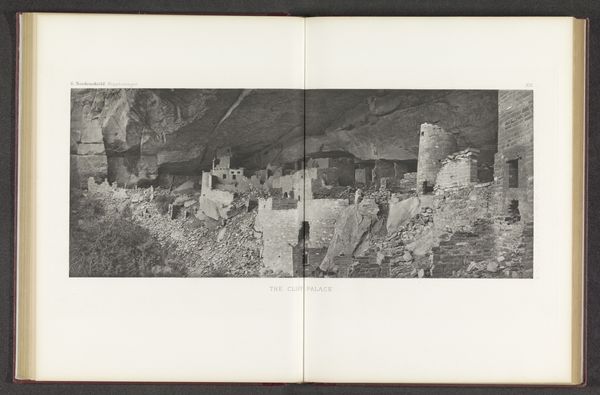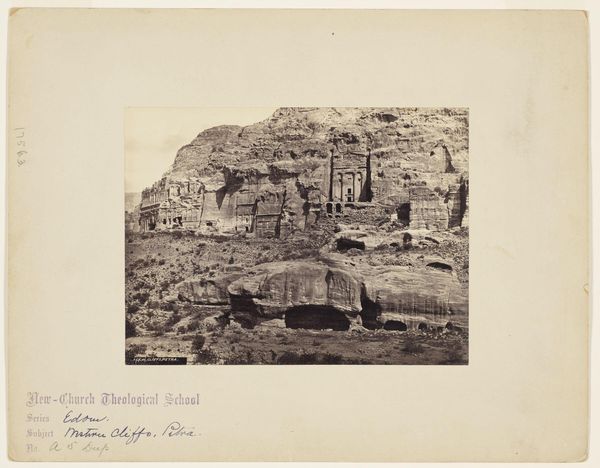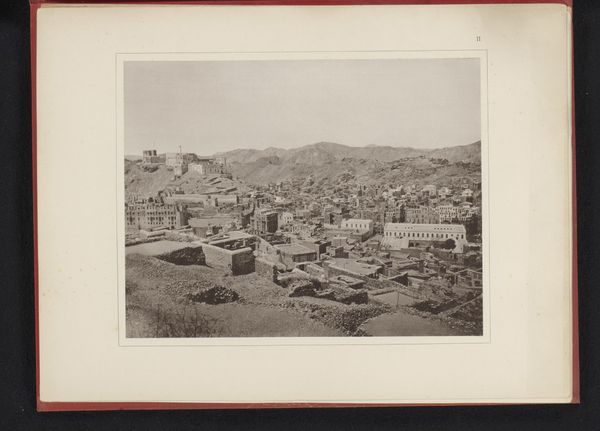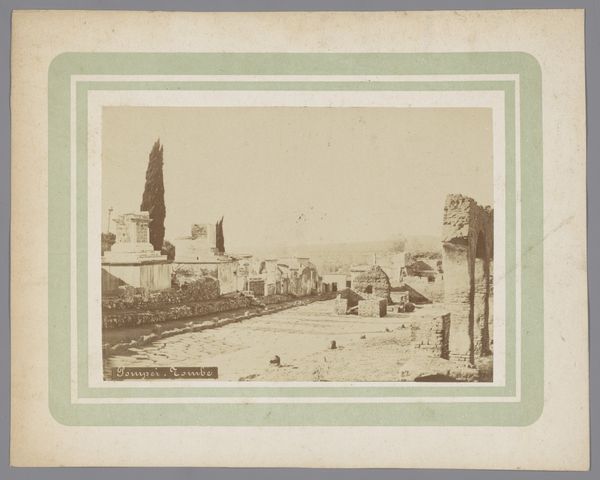
photography, albumen-print
#
landscape
#
photography
#
islamic-art
#
albumen-print
Dimensions: height 219 mm, width 275 mm, height 301 mm, width 378 mm
Copyright: Rijks Museum: Open Domain
Wilhelm Hammerschmidt produced this albumen print of the Mar Saba monastery in Israel at an unknown date. In the mid-19th century, photography was still a relatively new medium, and its use in documenting distant lands was gaining popularity. This image captures the austere beauty of the monastery, perched precariously on the Kidron Valley. The choice of this subject matter reflects the growing interest in biblical lands and religious sites during that era. Hammerschmidt, a German artist, likely traveled to the region, perhaps commissioned, to document it for European audiences eager for visual representations of the Holy Land. Photographs like this offered a glimpse into a world that was both historically significant and geographically remote. The image's composition, with the monastery dominating the rugged landscape, reinforces the idea of religious presence amidst a harsh environment. Examining travelogues and missionary records from this period can shed more light on the cultural context surrounding the production and consumption of such images. The study of this artwork gives us unique insights into 19th-century visual culture and its fascination with distant lands and religious heritage.
Comments
No comments
Be the first to comment and join the conversation on the ultimate creative platform.
